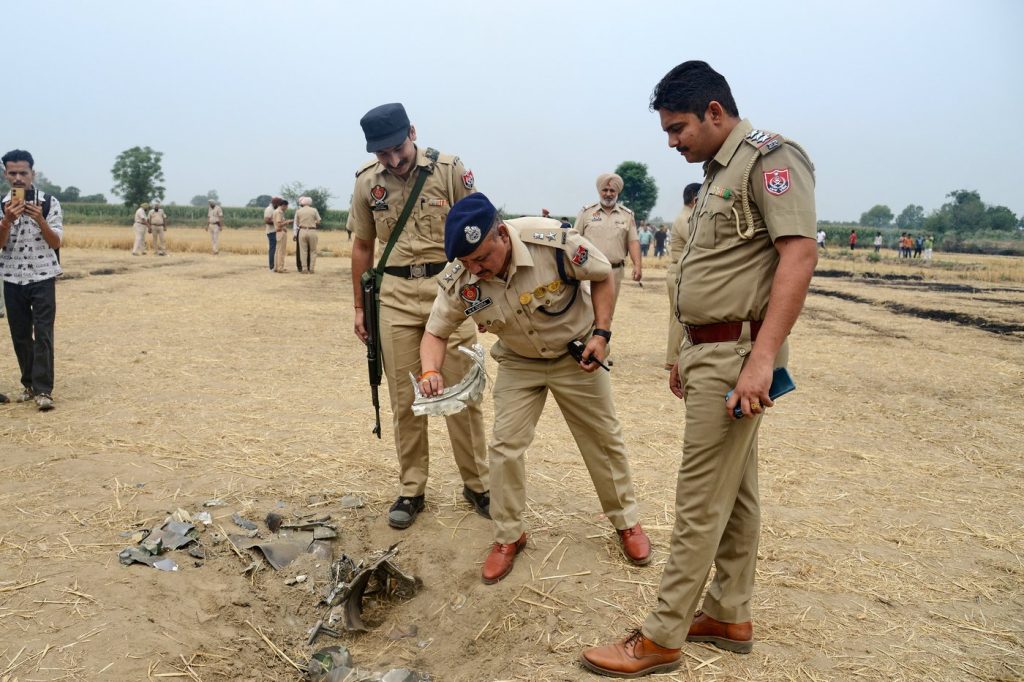ISLAMABAD (AP) - On Saturday, India and Pakistan indicated their willingness to de-escalate their ongoing conflict, contingent upon reciprocal actions from the other side. This development follows a series of missile and drone attacks on each other's military bases, marking one of the most significant confrontations between the nuclear-armed rivals in decades.
The two nations have been engaged in hostilities after a tragic gun massacre last month, which India attributes to Pakistan. Pakistan's Foreign Minister Ishaq Dar stated that his country would consider de-escalation if India refrained from further attacks, while also warning that any Indian strikes would elicit a response. Dar relayed this message to U.S. Secretary of State Marco Rubio, who had previously spoken with New Delhi about the situation.
Dar commented, "We responded because our patience had reached its limit. If they stop here, we will also consider stopping." On Saturday morning, India targeted Pakistani air bases in response to Islamabad's firing of high-speed missiles at military and civilian infrastructures in Punjab state.
The Pakistani military claimed to have intercepted most of the missiles, asserting that retaliatory strikes on Indian targets were underway. Rubio emphasized the need for both sides to find methods to de-escalate tensions and reestablish direct communication to prevent further escalations, offering U.S. support to facilitate constructive dialogue.
Indian Col. Sofiya Qureshi confirmed during a press conference in New Delhi that Pakistan had targeted health facilities and schools near three air bases in Indian-controlled Kashmir. She stated that a suitable response had been rendered to Pakistani actions. Wing Commander Vyomika Singh also mentioned India's commitment to "non-escalation," provided that Pakistan reciprocates. However, she noted signs of Pakistani ground forces mobilizing towards forward areas, hinting at potential offensive maneuvers.
Singh elaborated that the Indian armed forces had conducted "precision strikes" on confirmed military targets in response to Pakistani provocations, affecting technical infrastructure, command and control centers, radar stations, and weapons storage to minimize collateral damage. She stated, "All hostile actions have been effectively countered and responded to appropriately."
Pakistan's military utilized medium-range Fateh missiles to target Indian missile storage facilities and air bases, and Army spokesman Lt. Gen. Ahmad Sharif asserted that Pakistan's air force assets remained secure despite the Indian strikes. State-run Pakistan Television reported that Prime Minister Shehbaz Sharif held a meeting of the National Command Authority to oversee the country’s missile program and strategic assets.
Tensions have escalated sharply since an attack on April 22 at a popular tourist site in India-controlled Kashmir, which resulted in the deaths of 26 civilians, primarily Hindu Indian tourists. India has accused Pakistan of supporting the assault, a claim that Islamabad has vehemently denied.
Indian missiles targeted several air bases, including the Nur Khan air base near Islamabad, with no immediate reports emerging about the attacks' effects from the densely populated region of Rawalpindi. Following reports of Pakistan's retaliation, residents in Indian-controlled Kashmir reported loud explosions, hinting at military targets being targeted. Shesh Paul Vaid, a former police official, described the atmosphere as warlike, while Srinagar appeared relatively calm, although some residents reported feeling rattled by the explosions and the sound of fighter jets.
Praveen Donthi, a senior analyst with the International Crisis Group, remarked on the ongoing conflict, stating, "It’s become a remorseless race for military one-upmanship with no apparent strategic end goals from either side." He cautioned that with increasing civilian casualties, finding a resolution would be challenging.
In conclusion, India and Pakistan continue to engage in heightened military actions, with each side trading strikes and incurring civilian casualties, intensifying the already volatile relationship between the two nations.











